[EN/PT] The King of Candle 🕯️
[🇺🇸] English
King Abelard I agonizes; his Secretary, Abelard II, yearns to rise to power; the caged people deliriously starve.
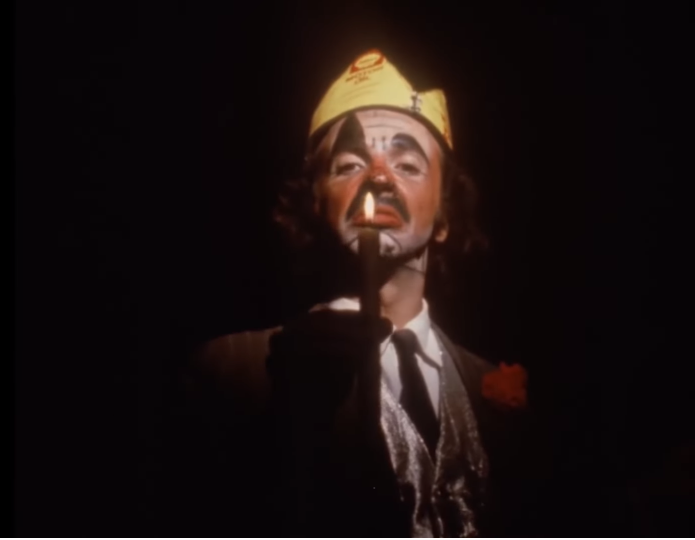
Footage from the historical staging of Oswald de Andrade's play, decadent rich, children breaking tradition, the banker in the colonial tropics are the characters portrayed by the Oficina Group, in a famous theatrical performance held in 1967, primarily recorded in '71, and released only in '82.
Directors: José Celso Martinez Corrêa, Noilton Nunes
Costumes: Hélio Eichbauer
Music: Damiano Cozzella, Rogério Duprat
Screenplay: José Celso Martinez Corrêa, Noilton Nunes, Carlos Ebert
The Oficina theater play is set in a few scenes:
- The Circus
- The Guanabara Bay Panel, a reference to the Revue Theater
- Third Act, a Tragedy
The Candle King (1967) is the first time Oswald de Andrade's original play (1890-1954) is staged and performed by the São Paulo Oficina Theater.
The Candle King breaks the paradigms of bourgeois aesthetics in a period of social and political upheaval – the Estado Novo (1937-1943), a period of curbing individual freedoms.
The play brings to the stage what was initiated by Oswald de Andrade with the Week of Modern Art (1922) and with the anthropophagic movement.
Act 1
Moneylender Abelard I is a nouveau riche interested in social ascent through marriage to the coffee aristocrat Heloísa, who wishes to reverse her economic decline.
The matrimonial transaction takes place under the interference of a representative of foreign capital. Power relations blur in a script that mixes personal credit operations with transactions between imperialist and colonized nations, all the while Zé Celso's orgasmic language challenges the morality of a conservative and reactionary bourgeoisie.
It's the Mother fucker social revolution,
the play starts at the end, Abelard's death.
When life begins. He wants to die with a candle in hand.
Die with a candle.
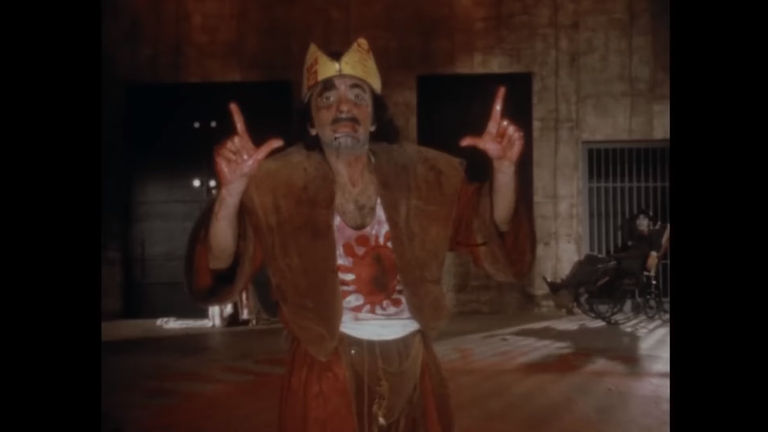
Marriage as Class Perpetuation
General Mr. Jones, the American, is invited to be the best man at the Candle King's wedding to the Coffee Queen. The wedding will take place on a paradise island in Guanabara Bay. The figure of Dona Cessaria, Heloísa's mother and Abelard's mother-in-law. The caricatures of the Oficina theater and the mockery are evident. Affirmation in non-affirmation. The kindness of our modern and traditional matriarch, unapologetic. Our Jaqueline Kennedy.
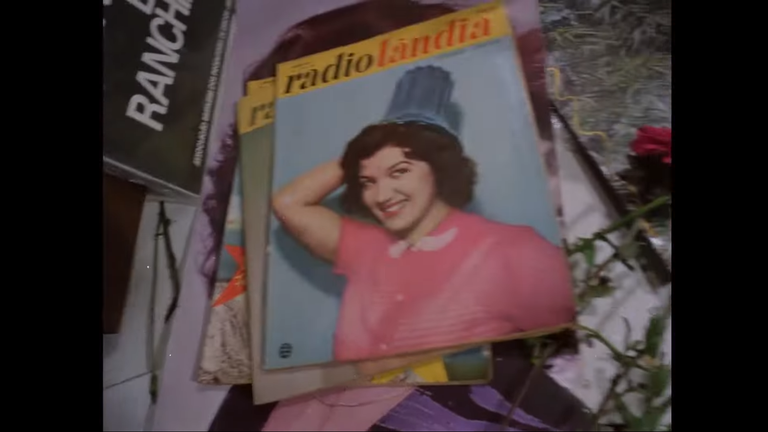
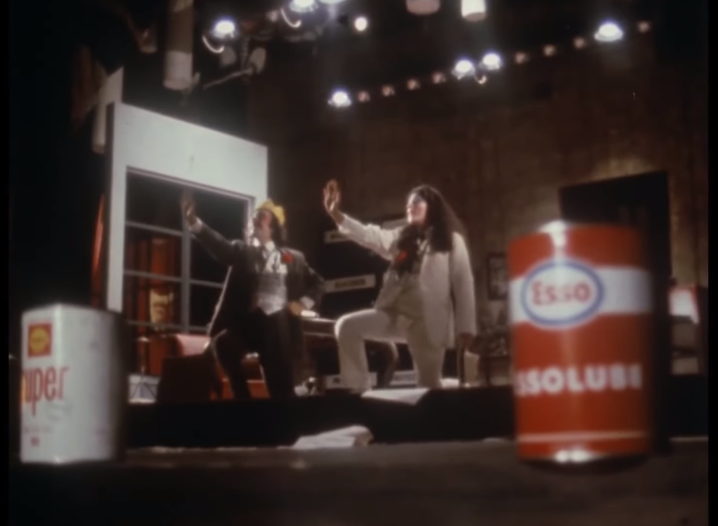
Abelard I: My dear bride, concentration is a phenomenon I can grasp with my hands. Under the law of competition, the strong have always eaten the weak, so from now on, the São Paulo latifundiums are reconstituting themselves under new owners.
Heloísa: Your work is remarkable!
Abelard I: Don't be ironic about your own happiness; we all know that thousands of workers toil from sunrise to sunset to provide us with luxury and comfort.
Abelard I: This is the society we live in: a capitalist regime! And may God save it.
Heloísa: But aren't you afraid of anything?
Abelard I: But the English and Americans fear for us.
Abelard I: We are tied to their fate.
Abelard I: We owe everything, we have what we don't have, we've mortgaged palm trees, waterfalls, and cardinals!
Abelard I: Do you believe, my love, that New York would have those living Babylons of skyscrapers and the 20,000 most beautiful legs on earth if it weren't for Wall Street, from Ribeirão Preto to Singapore, from Manaus to Liberia?
Abelard I: I know I'm a mere follower of foreign capital, a lackey if you will. But I don't complain.
Abelard I: That's why I own an island, a yacht, and you, my love.
Cultural Manifestation During the Dictatorship
In the 1960s, during the Military Dictatorship and on the eve of AI-5, the Oficina Theater, along with other artists of different aesthetics, such as the Arena Theater, shared the concern of not alienating the stage from the historical and social context of the country. To respond to the complex economic, cultural, and political moment, they turned to insubordination.
Football is already culture, theater is the sport of the masses. The cinema's light of memory.
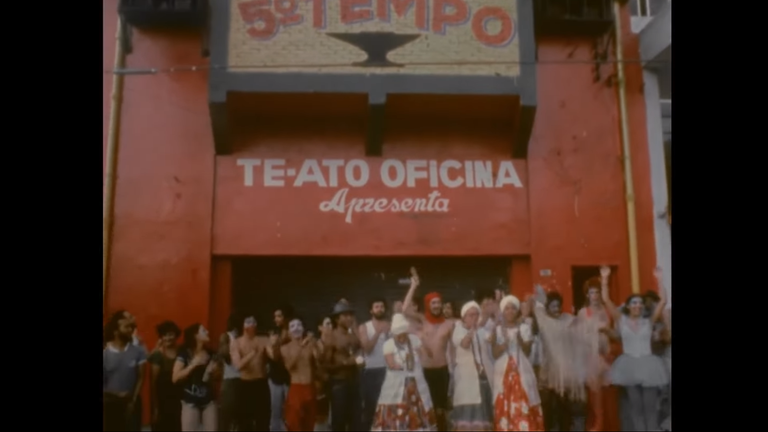
Act 2
Abelard II
In a dialogue between the Abelards, a description of the secretary unfolds:
A repressed man from Brazil, a product of the climate, slave economy, and inhumane morality making millions and millions of desperate unionists to maintain imperialism and the reactionary family.
I know you, untamed beast. Capable of the worst intentions.
A disguised Febrônio from the streets of Brazil.
Tomorrow, when you enter the possessions of your fortune, you will also defend the sacred institution of the family, virginity, and modesty. To ensure money remains through legitimate children in a single class.
Abelard II: But I've always defended tradition and morality!
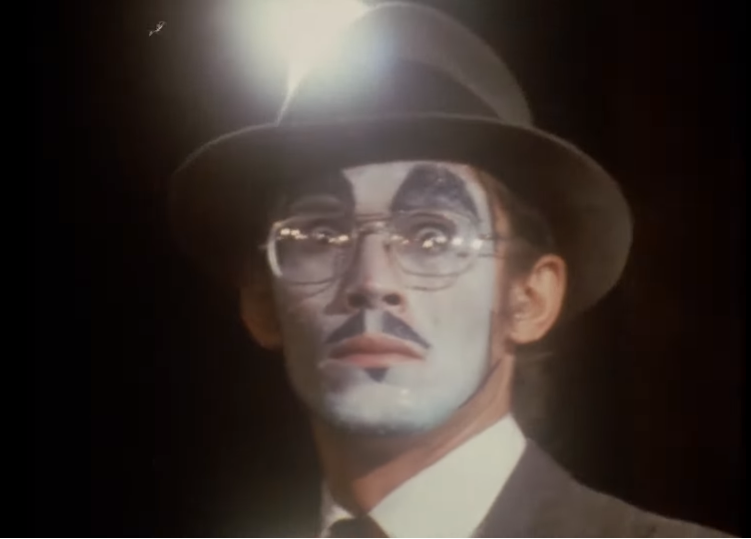
Why Doesn't Brazil Pay the Debt with the Burning Coffee?
Heloísa: Why doesn't Brazil pay the debt with the coffee it's burning?
Mr. Jones: Brazil needs many planes, tanks, machine guns. Exchange for coffee. Good Business.
Abelard: It's true, my love, war.
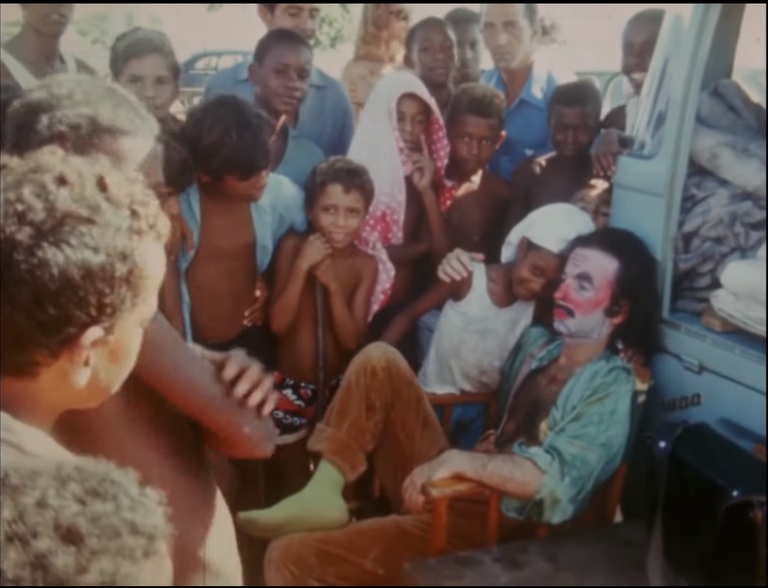
We need to arm ourselves against war, against anyone's war. Internal or external.
We must provide employment for the unemployed; the theater here breaks down barriers with the audience watching.
The Song of Jujuba
He was a simple dog
A street dog
But an idealistic dogThe soldiers from a cartel
Adopted Jujuba
Jujuba became the battalion's mascot
But Jujuba was a friend to his street companionsAt mealtime, he would appear, bringing two, three, four
Soon, the lean, dirty, and miserable pack of dogs filled the courtyard of the barracks
One day the major said, the soldiers opposed the departure of the mascot
They took Jujuba in their arms and joined the other dogs
RàaaaaaaaThe stray dog returned to the street
But when Jujuba saw himself free
He refused to enjoy the privilege they wanted to give him
He went with the others, he went with the othersAbelard II: Demagoguery
Abelard: No, he proved he wasn't
He never returned to the barracksThe soldiers erected a monument to Jujuba in the barracks' courtyard
Do you understand?
Those who don't betray, who don't betray, who don't betray are his brothers
The soldiers are also from the same class as Jujuba, one day they too will leave the barracksIn haste, the barracks
It will be the social revolution
Perdigoto and the Sponsored Coup
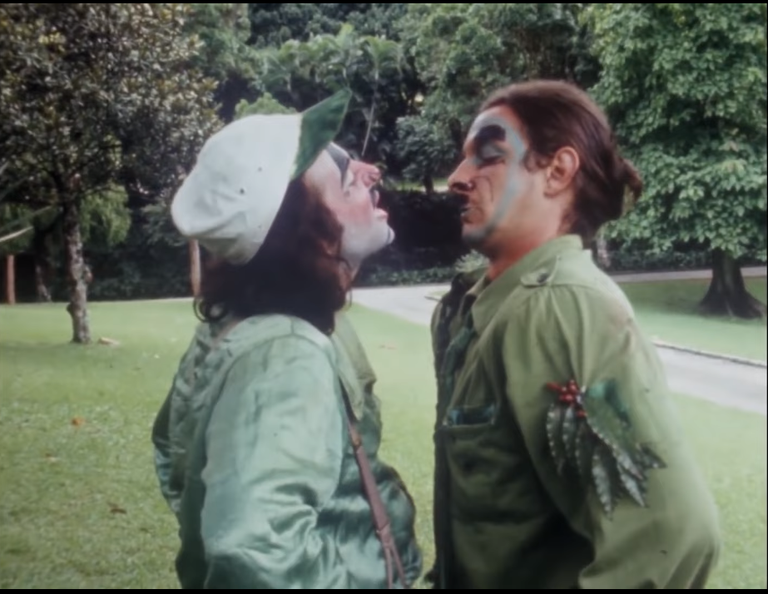
Abelard: Another one? Don't you know any other address?
Perdigoto: It's a transaction that interests you.
Abelard: You're a scoundrel.
Perdigoto: Who are you to tell me that?
Abelard: A man who fed his family before even entering it.
Perdigoto: Dog.
Abelard: You insult me.
Perdigoto: I'm used to it; on the farm, I use a whip!
Abelard spits in his face and slaps him.
Abelard: But not with me; you insult and mistreat those who work for you. The ones who wear nice clothes, with which you'll lose rivers of money at the equestrian club and the automobile club. Fortunately, that time is over, my friend!
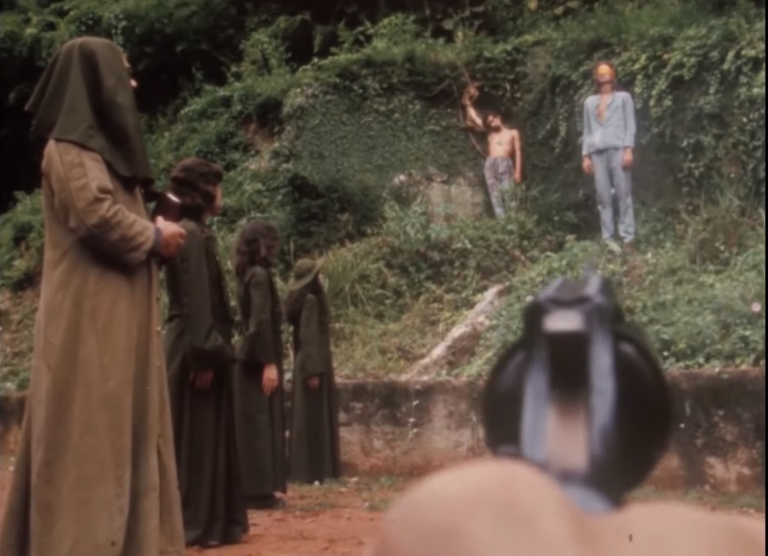
Perdigoto insists on the conversation and says:
I've noticed growing discontent among the farm workers on neighboring farms.
There's only one remedy; we must instill fear. Scare them!
A colored shirt is enough. Weapons. Ammunition.
Abelard adds:
And money...
Perdigoto:
Stop fooling around. The situation demands it.
We'll organize a patriotic militia.
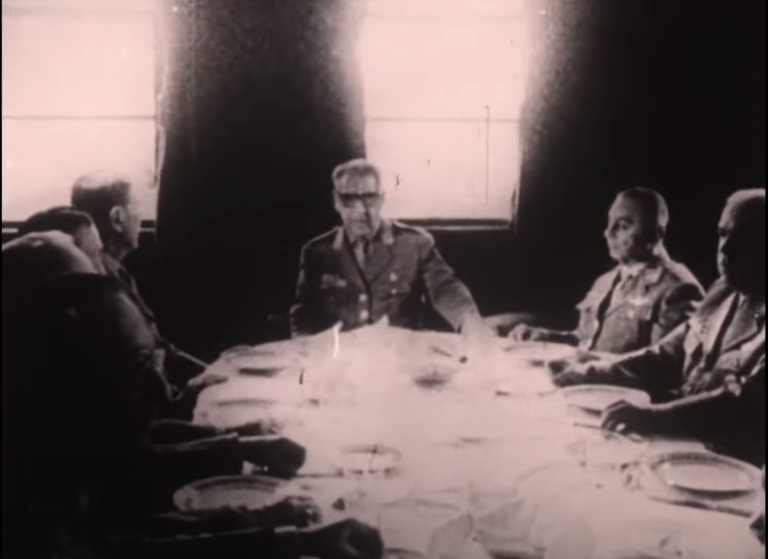
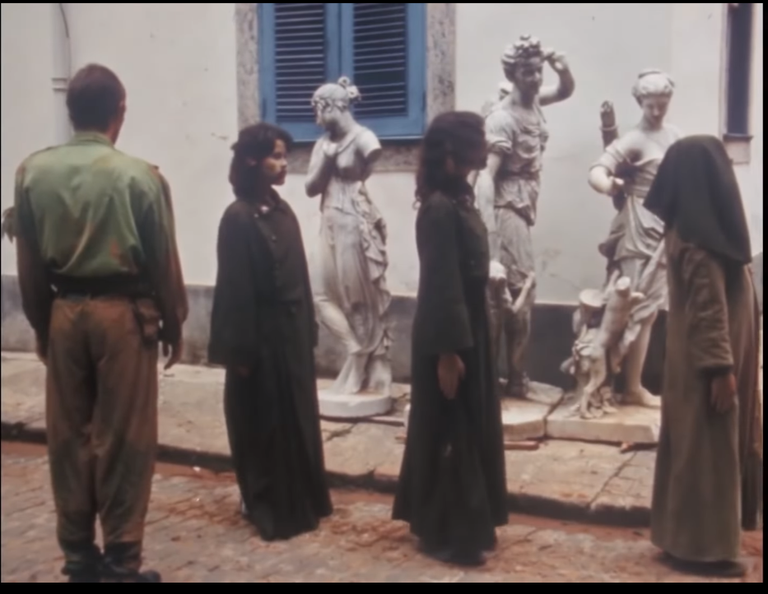
We'll temporarily settle in the central house, enlist people, coordinate with neighboring farms.
The thugs are always ready; it will be our headquarters.
And if the colony makes a sound.

And peace will return to the Old Farm.
Be firm!
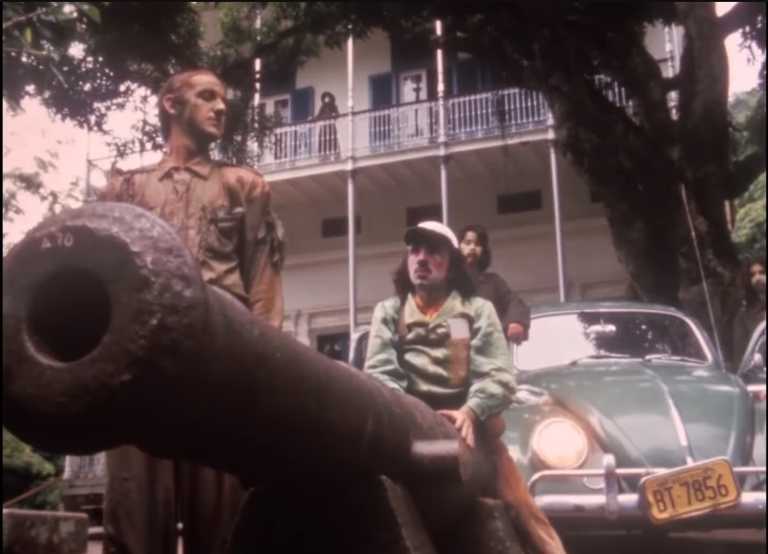
Abelard: How much do you want?
Perdigoto: 10 conto.
Abelard: I know you'll just gamble this money away. Do you want to try your last shot, parasite?
But the idea isn't bad, actually. It must not be yours. In fact, it's a copy of what's being done in capitalist countries in desperation.
Heloísa, Abelard, and the American
Aren't you going for a swim? Everyone's ready.
Abelard: No, I'm not going. I have a splitting headache. I prefer to rest. Take this damn American!
Heloisa: Are you regretting it?
I don't bring you social, physical, political, or financial advantages.

Abelard: Both of us are part of a threatened whole, a capitalist world! Oh, if the imperialist bankers wish it. Do you know? There's a day when the bourgeoisie declares itself tired of bearing the ideals of justice of humanity, the achievements of civilization, and other nonsense!
And they organize themselves as a class, as a class, politically!
Heloisa: Well then, I'll play alligator with the American.
Abelard: Haha, go ahead, my dear, have fun.

The Power of Mr. Jones
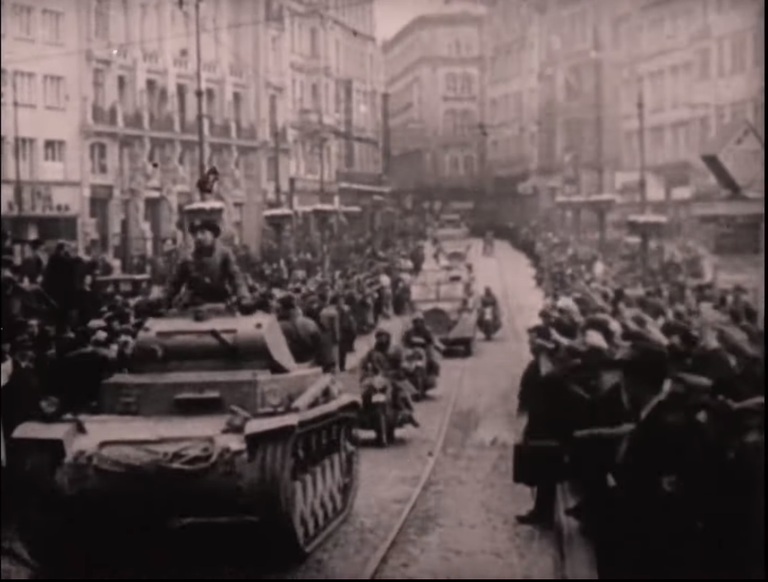
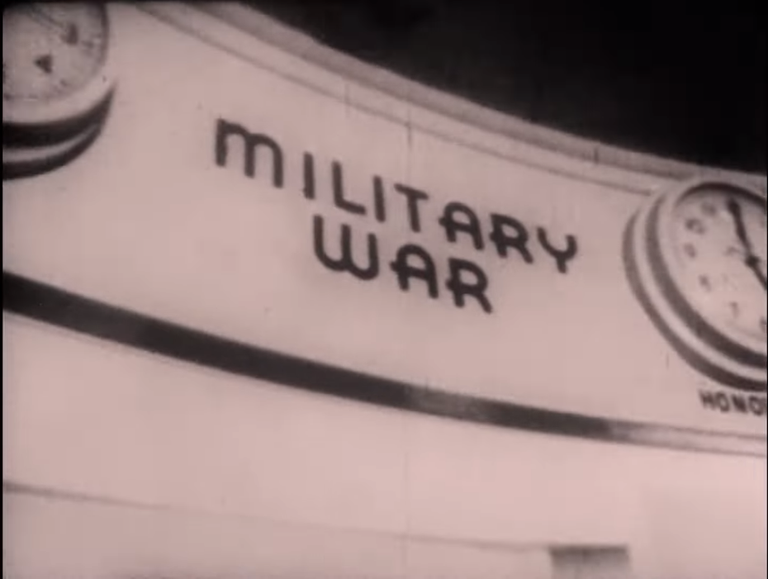

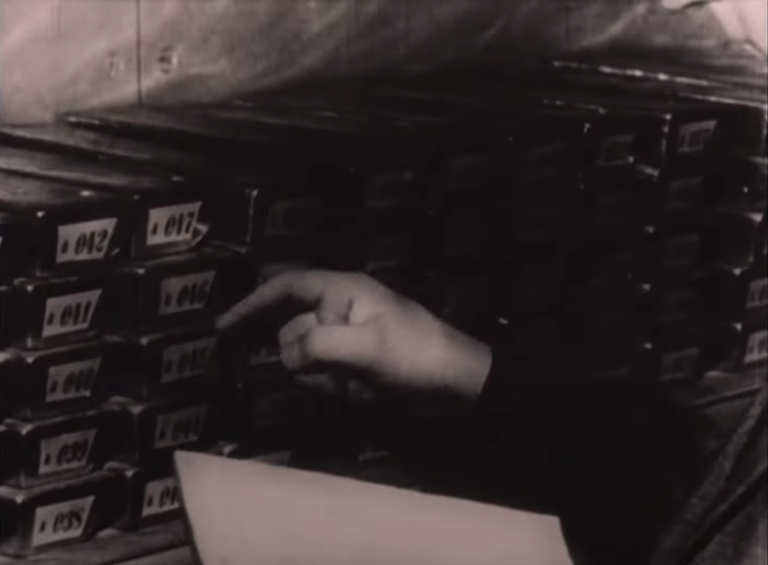


Abelard Laments
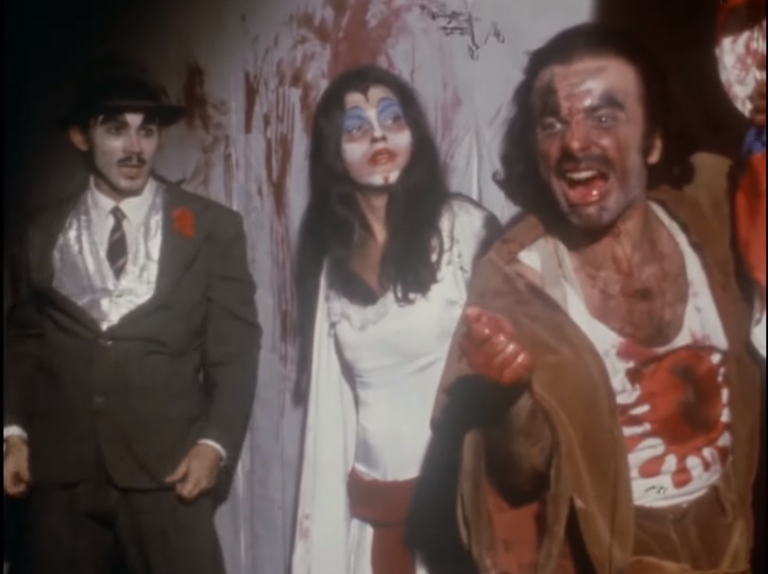
I was as poor as Jujuba. But I didn't do what he did.
I believed that what they call society was like a citadel. That could only be taken from the inside, by someone who penetrated it, just as you penetrated my life.
I did that too, I betrayed my hunger.
The struggle for money, the struggle for freedom
Only money gives freedom!
The freedom to love, to kill, to lie!
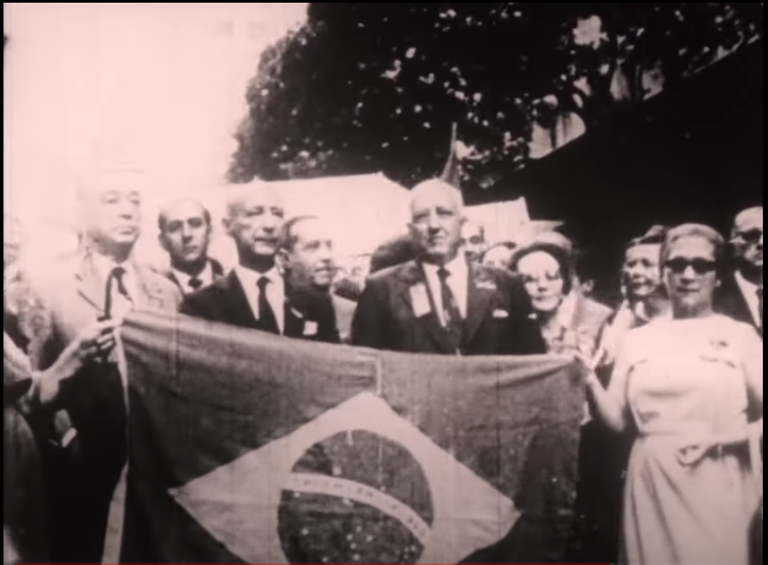
Caetano: Music, Theater, and Tropicalism
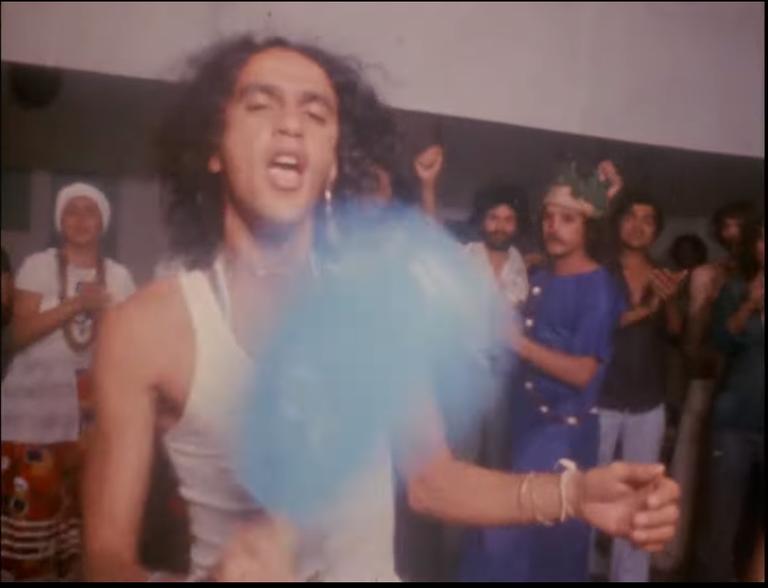
Verdura Caetano
Suddenly, I remember green
The color green, the greenest there is
The happiest color, the saddest color
The green you wear, the green you wore
The day I saw you
The day you
Saw meSuddenly, I sold my children to an American family
They have a car
They have money
They have a house, and the grass is nice
Only then can they come back
And sunbathe in Copacabana (Copacabana)
(And sunbathe in Copacabana)
(And sunbathe in Copacabana)
(And sunbathe in Copacabana)
And sunbathe (in Copacabana)
Third Act
The narrator's voice appears and says:
In the final scene of the piece, Abelard I, Heloísa, and Mr. Jones, along with other characters, are on the stage in a state of chaos, revelry, and disarray. The play seems to culminate in a Bacchanalian celebration, with characters drinking, dancing, and engaging in debauchery.
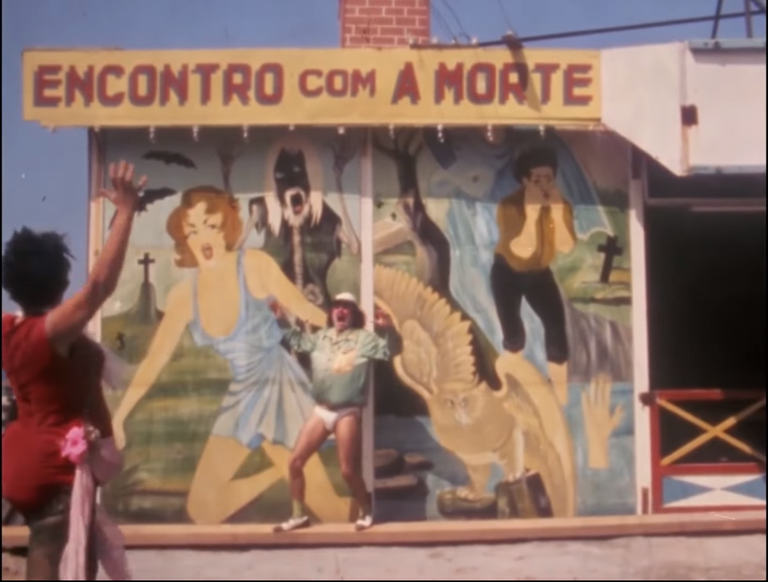
The play ends with Abelard I, the Candle King, seemingly dying while holding a candle. The symbolism of the candle, which represents both life and death, is a recurring motif throughout the play. As Abelard I dies, the other characters continue their revelry, seemingly indifferent to his fate.
The narrator's voice appears once again:
[Narrator: And so, the Candle King meets his end, while the world around him continues its wild and chaotic celebration. The play leaves us with a sense of absurdity and a commentary on the decadence and excesses of the bourgeoisie. It's a provocative and challenging work that reflects the tumultuous times in which it was created.]

**Abelard II almost reigns, the agony continues. The walls of borders too. Sometimes so strong trying to separate us. We, even we who love each other and work to dissolve. Today in the cage, blocked, we delight happily; It's over, it's begun!
The walls haven't all fallen, but our love hasn't either. It has grown, so it continues today. Today is the end of the beginning. Giving birth to projects without borders. Theater.**
[🇧🇷] Português
Rei Abelardo I agoniza; seu Secretário, Abelardo II, anseia subir ao poder; o povo enjaulado delira de fome.
Filmagem da montagem histórica da peça de Oswald de Andrade, ricos decadentes, filhos que rompem a tradição, o banqueiro no trópico colonial são os personagens interpretados pelo Grupo Oficina, em uma célebre apresentação teatral realizada no ano de 1967, gravada fundamentalmente em 71 e lançada apenas em 82.
Diretores: José Celso Martinez Corrêa, Noilton Nunes
Figurino: Hélio Eichbauer
Música: Damiano Cozzella, Rogério Duprat
Roteiro: José Celso Martinez Corrêa, Noilton Nunes, Carlos Ebert
A peça do teatro oficina é montada em alguns cenários:
- O Circo
- O Painel da Baia de Guanabara, em uma referência ao Teatro de Revista
- Terceiro Ato, uma Tragédia
O Rei da Vela (1967) é a primeira vez que a peça original de Oswald de Andrade (1890-1954) é montada e realizada pelo Teatro Oficina de São Paulo.
O Rei da Vela rompe paradigmas da estética burguesa em um período de convulsão social e política – o Estado Novo (1937-1943), um período de cerceamento das liberdades individuais.
A peça trás a cena o que foi iniciado por Oswald de Andrade com a Semana de Arte Moderna (1922) e com o movimento antropofágico
Primeiro Ato
O agiota Abelardo I é um novo rico interessado na ascensão social pelo casamento com a aristocrata do café Heloísa, que deseja reverter sua decadência econômica.
A transação matrimonial acontece sob interferência de um representante do capital estrangeiro. As relações de poder se confundem em um roteiro que mistura as operações de crédito pessoal às transações entre nações imperialistas e colonizadas, ao mesmo tempo em a linguagem orgástica de Zé Celso fere a moral de uma burguesa conservadora e reacionária.
É a revolução social Mother fucker,
a peça começa pelo fim, a morte de Abelardo.
Quando a vida começa. Quer morrer de vela na mão.
Morrer de Vela.

O Matrimonio como perpetuação de classe
O General Mr. Jones, o americano é convidado para ser padrinho de casamento pelo rei da vela com a Rainha do Café. O casamento será em uma ilha paradisíaca na baia de Guanabara. A figura de Dona Cessaria, a mãe de Heloísa e sogra de Abelardo. As caricaturas do teatro oficina e o deboche ficam evidentes. A afirmação na não afirmação. A amabilidade da nossa matriarca Moderna e Tradicional, sem complexos. Nossa Jaqueline Kennedy


Abelardo I: Senhora minha noiva, a concentração é um fenômeno que eu apalpo com minhas mãos. Sob a lei da concorrência, os fortes comeram sempre os fracos desse modo que desde de já os latifúndios paulista se reconstituem sobre novos proprietários.
Heloisa: Formidável o trabalho seu!
Abelardo I: Não faça ironia com sua própria felicidade, nos estamos cansados de saber que milhares de trabalhadores trabalham de sol a sol para nos da farra e conforto.
Abelardo I: É assim a sociedade que vivemos: um regime capitalista! E que Deus o guarde.
Heloísa: Mas você não teme nada
Abelardo I: Mas os ingleses e americanos temem por nós.
Abelardo I: Nos estamos ligados ao destino deles.
Abelardo I: Devemos tudo, o temos o que não temos, hipotecamos palmeiras, quedas d'aguas, cardiais!
Abelardo I: Você acredita meu amor que Nova Iorque teria aquelas babeis vivas de arranha-céus e as 20 mil pernas mais bonitas da terra se não de wallstreet de ribeirão preto a Singapura, de Manaus a Liberia.
Abelardo I: Eu sei que eu sou um simples seguidor do capital estrangeiro, um lacaio se quiserem. Mas eu não queixo.
Abelardo I: É por isso que possuiu uma ilha, uma lancha e você meu amor
Manifestação cultural na ditadura
Nos anos 1960, em plena Ditadura Militar e às vésperas do AI-5, o Teatro Oficina compartilha com outros artistas de estéticas distintas, como o Teatro de Arena, a preocupação de não alienar o palco do contexto histórico e social do país. Para responder ao complexo momento econômico, cultural e político recorre a insubordinação.
Futebol já é cultura, teatro é o esporte das multidões. A luz memória do cinema.

Segundo Ato
Abelardo II
Em um diálogo entre Abelardos acontece uma descrição do secretário
Homem recalcado do Brasil, produto do clima, da economia escrava, e da moral desumana, que faz milhões e milhões de unionistas desesperados para manter o imperialismo e a família reacionária.
Conheço-te, fera solta. Capaz dos piores propósitos.
Febrônio dissimulado das ruas do Brasil
Amanhã quando entrares das posses da sua fortuna, dependerás também a sagrada instituição da família, a virgindade, o pudor. Para o dinheiro permaneça através dos filhos legítimos numa classe só
Abelardo II: Mas eu sempre defendi a tradição e a moral!

Por que o Brasil não paga a dívida com o Café que está queimando?
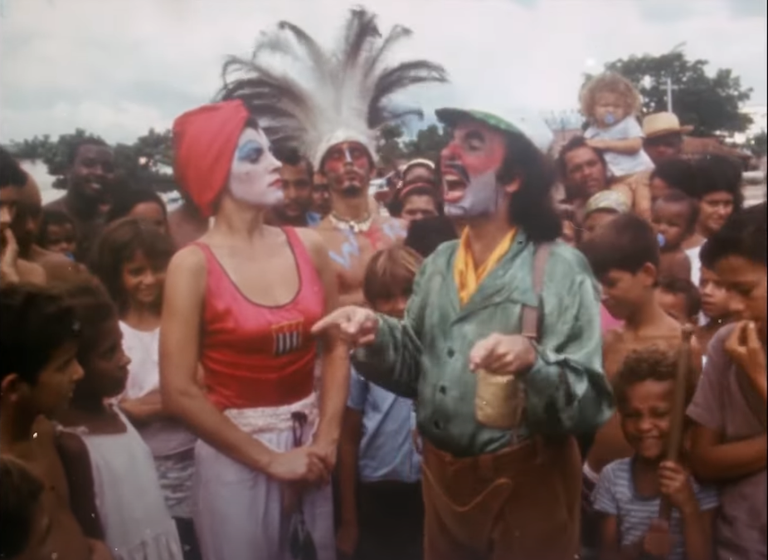
Heloisa: Porque o Brasil não paga as dividas com os cafés que está queimando?
Mr.Jones: O brasil precisa de muitos aviões, tanques, metralhadores. Troca por Café. Good Business
Abelardo: É verdade amor, a guerra.

Nós precisamos nos armar contra a guerra. contra qualquer pessoa guerra. Interna ou externa.
É preciso dar emprego aos desocupados, o teatro aqui quebra a barreira com o público que está assistindo.
A Canção de Jujuba
Era um simples cachorro
Um cachorro de rua
Mas um cachorro idealistaOs soldados de um cartel
Adotaram Jujuba
Jujuba ficou sendo o mascote do batalhão
Mas o Jujuba era amigo de seus companheiros de ruaNa hora da boia aparecia trazendo dois, três, quatro
Em pouco a cachorrada magra, suja e miserável enchia o pátio do quartel
Um dia o major dizia, os soldados se opuseram da saída do mascote
Tomaram Jujuba nos braços e se engrenharam com os outros cachorros
RàaaaaaaaA cachorrada vadia voltou para a rua
Mas quando Jujuba se viu solto
Recusou-se a gozar do privilegio que queriam lhe dar
Foi com os outros, foi com os outrosAbelardo II: Demagogia
Abelardo: Não, ele provou que não
Nunca mais voltou para o quartelOs soldados ergueram um monumento ao Jujuba no pátio do quartel
Compreenderam?
O que não trai, que não trai, que não trai eram seus irmãos
Os soldados são também da mesma classe de Jujuba, um dia também deixaramAtropeladamente, os quartéis
Será a revolução social
Perdigoto e o Golpe patrocinado

Abelardo: Mais um, você não conhece outro endereço?
Perdigoto: É uma transação que lhe interessa
Abelardo: O senhor é um crápula
Perdigoto: Quem é o senhor para me dizer isso?
Abelardo: Um homem que matou a fome da sua família antes mesmo de entrar nela
Perdigoto: Cão
Abelardo: Insulta-me
Perdigoto: Eu estou habituado a isso, na fazenda eu uso chicote!
Abelardo cospe na cara dele e da um tapa
Abelardo: Mas não comigo, o senhor insulta e maltrata quem os trabalha. Os que lideram belas roupas, com que o senhor vai perder rios de dinheiro na hípica e no automóvel clube. Felizmente esse tempo acabou amigo!
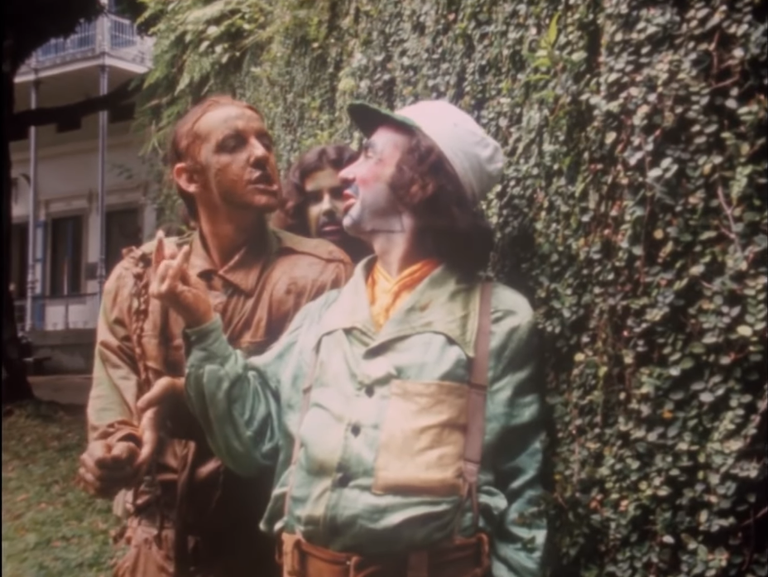
Perdigoto insiste na conversa e diz:
Eu tenho notado em algumas fazendas vizinhas um descontentamento crescente entre os colonos
Só a um remédio, é preciso castigar. Meter medo!
Uma camisa de cor basta. Armas. Munições
Abelardo Completa:
e Dinheiro...
Perdigoto:
Para de brincadeira. A situação obriga isso.
Organizaremos uma milícia patriótica.


Nos instalaremos provisoriamente na casa central, arrolaremos gente, combinaremos com as fazendas vizinhas
A capangada esta sempre pronta, será nosso quartel general
E se a colônia der um pio.

E a paz voltará novamente a Fazenda Antiga.
Endureça!

Abelardo: Quanto quer?
Perdigoto: 10 conto.
Abelardo: Eu sei que você vai jogar esse dinheiro. Quer tentar sua última parada: Parasita.
Mas a ideia não é má não. Não deve ser sua. Alias é uma copia do que se está se fazendo nos países capitalistas em desesper
Heloísa, Abelardo e o Americano
Você não vai ao banho? estão todos prontos
Abelardo: Não eu não vou não. Estou com dor de cabeça de rachar. Eu prefiro repousar. Leva esse Americano de uma figa!
Heloisa: Estais arrependido?
Não te trago vantagens sociais, físicas, politicas, bancárias

Abelardo: Nós dois fazemos parte de um todo ameaçado, um mundo capitalista! Ai, se os banqueiros imperialistas quiserem. Você sabe? A um dia que a burguesia se declara cansada de carregar sobre os ombros os ideais de justiça da humanidade, as conquistas da civilização, e outras besteiras!
E se organizar como classe, como classe, policialmente!
Heloisa: Então. vou brincar de jacaré com o americano.
Abelardo: Haha, brinca meu bem, brinca.

O Poder de Mr. Jones






Abelardo se lamenta

Eu era pobre como Jujuba. Mas não fiz como ele.
Acreditei que isso que chamam de sociedade. Era como um cidadela. Que só podia ser tomada por dentro, por alguém que penetrasse nela, assim como você penetrou na minha vida.
Eu também fiz isso, trai a minha fome.
A luta pelo dinheiro, a luta pela liberdade
Só o dinheiro dá a liberdade!
A liberdade de amar, de matar, de mentir!

Caetano: música, teatro e tropicalismo

Verdura Caetano
De repente me lembro do verde
A cor verde, a mais verde que existe
A cor mais alegre, a cor mais triste
O verde que vestes, o verde que vestiste
No dia em que te vi
No dia em que
Me visteDe repente vendi meus filhos pra uma família americana
Eles têm carro
Eles têm grana
Eles têm casa e a grama é bacana
Só assim eles podem voltar
E pegar um sol em Copacabana (Copacabana)
(E pegar um sol em Copacabana)
(E pegar um sol em Copacabana)
(E pegar um sol em Copacabana)
E pegar um sol (em Copacabana)
Terceiro Ato
A voz do narrador apareço e diz:

Eu sou o corifeu dos devedores galáxios, dos mãos pagadores, dos devorados da sociedade capitalistas
Os que tem o nome tingidos para sempre pelas má tintas dos protestos
Os que mandam dizer que não estão em casa o oficial de justiça
Os que pedem envergonhadamente tostões para dar de comer aos filhos
Os desocupados que esperam sem ter esperança
Os aflitos que não dormem pensando nas penhoras
América é um claque. Nos todos nos mudamos de continente para enriquecer e só encontramos escravidão e trabalho sobre a garra do imperialismo.
Hoje morremos de miséria e de vergonha. Somos os recrutas da pobreza.
Milhões de palitos transatlânticos para as nossas famílias educadas na ilusões da américa. Nós escolhemos a cadeia. Povo. Publico.
Fim

Obrigado por promover a comunidade Hive-BR em suas postagens.
Vamos seguir fortalecendo a Hive
It seems that this play is quite intense!! Moneyoney, power, foreign influence... It must have been a very provocative performance!
Your post was manually curated by @Shiftrox.
Delegate your HP to the hive-br.voter account and earn Hive daily!
🔹 Follow our Curation Trail and don't miss voting! 🔹
Congratulations @fcarva! You have completed the following achievement on the Hive blockchain And have been rewarded with New badge(s)
Your next target is to reach 2000 upvotes.
You can view your badges on your board and compare yourself to others in the Ranking
If you no longer want to receive notifications, reply to this comment with the word
STOPCheck out our last posts: